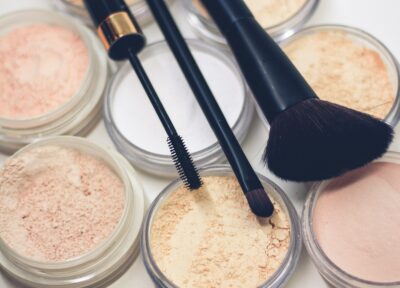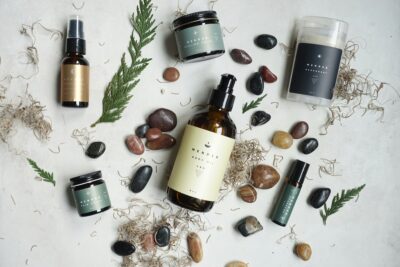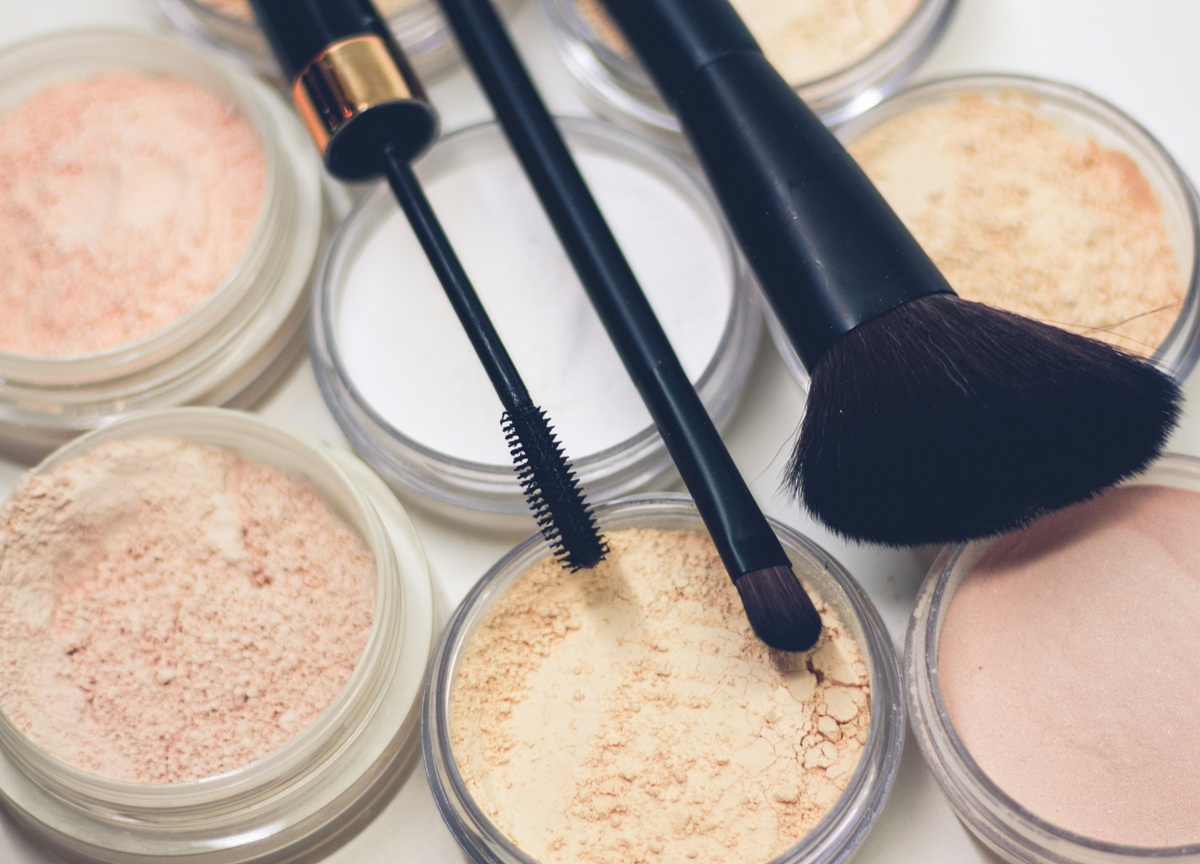Many beauty and skincare products seem harmless, but can beauty products affect fertility? These hidden ingredients may interfere with your hormones,
Many beauty and skincare products seem harmless, but can beauty products affect fertility? These hidden ingredients may interfere with your hormones, making it harder to conceive. Here’s what to watch out for and how to choose safer alternatives.
Certain ingredients commonly found in beauty and personal care products may have an impact on fertility in both women and men. This is mainly due to chemicals that can interfere with the body’s hormonal system, often referred to as endocrine disruptors. These substances may affect reproductive health by altering hormone levels or disrupting normal reproductive processes. Can Beauty Products Affect Fertility.

Harmful Ingredients to Be Aware Of
1. Phthalates
These are chemicals often used to make plastics flexible and to help fragrances last longer in products like perfumes, lotions, and hair sprays.
Potential Effects: They may lower sperm quality, disrupt hormone levels, and negatively influence female reproductive health. This answers the question, Can Beauty Products Affect Fertility
2. Parabens
Used as preservatives in cosmetics to prevent bacterial growth, parabens are frequently found in makeup, moisturizers, and hair care products.
Potential Effects: They may mimic estrogen in the body, potentially leading to hormonal imbalance, fertility issues, or even increased miscarriage risk.
3. Formaldehyde and Related Compounds
Formaldehyde is sometimes released by ingredients such as DMDM hydantoin, quaternium-15, or diazolidinyl urea. These are often used in nail treatments and hair products.
Potential Effects: Exposure has been associated with reproductive difficulties and increased miscarriage risk.
4. Artificial Fragrances
The term “fragrance” or “parfum” on a label can refer to a mixture of various chemicals, some of which may interfere with hormones.
Potential Effects: These hidden chemicals may contribute to reproductive hormone disruption. Answering a question: Can Beauty Products Affect Fertility
Simple Ways to Reduce Risk
-
Choose unscented or naturally scented products to avoid hidden chemicals in synthetic fragrances.
-
Use products with minimal and recognizable ingredients. Fewer ingredients often mean fewer potential toxins.
-
Read labels carefully. Avoid anything listing parabens, phthalates, or formaldehyde-releasing compounds.
-
Ventilate your space when applying sprays or using strong-smelling products to limit inhalation of harmful substances.
-
Speak to a doctor or fertility specialist if you’re concerned about how your product use may affect your reproductive health.
Safe Beauty Choices When Trying to Conceive
If you’re planning to get pregnant, it’s a good idea to rethink the beauty products you use daily. Some cosmetics and skincare items contain ingredients that may interfere with hormone function or aren’t recommended during this sensitive time. Choosing safer, gentler alternatives can help support your overall reproductive health.

Safer Skincare Options to Answer a Question: Can Beauty Products Affect Fertility
Cleansers
Opt for mild, non-irritating cleansers such as milk-based or gel formulas. These are less likely to disrupt your skin’s natural balance and are ideal for sensitive skin. Buy Now
Moisturizers
Look for fragrance-free creams that suit your skin type—whether you need extra hydration or something soothing for sensitivity. Avoid products with synthetic dyes or intense perfumes. Buy Now
Serums & Treatments
If you use serums, make sure they are free from retinol or high-strength exfoliants like salicylic acid, which are not advised during pregnancy or while trying to conceive. Buy Now
Sunscreen
Sun protection is essential. Choose mineral-based sunscreens with ingredients like zinc oxide or titanium dioxide—they sit on the skin’s surface and are considered safer than chemical filters. Buy Now
Hair Care Considerations
Hair Dye
If coloring your hair, consider techniques like highlights or balayage that reduce contact with the scalp. This may help limit absorption of harsh chemicals.
Hair Removal
Waxing is generally safe, but your skin may be more sensitive during hormonal changes. Always patch test to prevent irritation.
Makeup Tips
Stick to products labeled as non-toxic, fragrance-free, and paraben-free. Natural or organic makeup brands often have safer ingredient profiles and are a better choice when trying to conceive.
Smart Product Practices: Can Beauty Products Affect Fertility
-
Read Ingredients: Steer clear of products with retinol, salicylic acid, phthalates, and synthetic fragrances. These are common in anti-aging and acne treatments but may not be ideal during preconception.
-
Patch Test New Products: Always test new items on a small area of skin to rule out irritation or allergic reactions.
-
Consult a Professional: If you’re unsure about certain products or ingredients, speak with a dermatologist or healthcare provider familiar with fertility-safe options.
-
Use Product Safety Tools: Websites like the EWG’s Skin Deep Database are helpful for checking the safety ratings of cosmetics and personal care items.
Final Thoughts: Small Changes, Lasting Impact and Can Beauty Products Affect Fertility
While more research is needed to fully understand how these chemicals influence fertility over time, being mindful of what you apply to your body is a smart precaution—especially for those planning to start a family. Switching to cleaner, more transparent personal care products is a small change that may have a meaningful impact.
Making informed choices about your beauty routine while trying to conceive is more than just a health precaution—it’s an act of self-care and intention. The skin is the body’s largest organ, and what we apply to it can influence more than just our appearance. By avoiding potentially harmful ingredients and switching to cleaner, safer alternatives, you’re not only protecting your reproductive health but also creating a gentler environment for your body during a critical stage of life.
The good news is that today’s market offers a wide range of fertility-friendly beauty options that are both effective and luxurious. Clean beauty is no longer limited to a niche; it’s becoming mainstream, giving you more access to high-performing products that are safer for you and your future baby.
Remember, no one expects perfection. You don’t need to overhaul your entire bathroom shelf overnight. Start with the products you use most often, like moisturizers, cleansers, and sunscreen, and gradually replace them with safer options. Every step you take toward reducing toxic exposure is a step toward supporting your fertility and overall well-being.
If you’re unsure where to begin, consult with a dermatologist or fertility expert who can guide you based on your personal needs. And don’t underestimate the value of online tools like the EWG Skin Deep database, which makes it easy to assess product safety quickly.
Your journey to parenthood should be supported by choices that honor both your body and your goals. Choosing mindful beauty routines is one small yet meaningful way to support a healthy foundation for the future.




COMMENTS